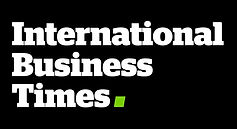As seen on








Chief Negotiator, Alex Adamo
Alex Adamo is our founder and Chief Negotiator at The Commercialiser. He embarked on a quest to learn behavioural sciences and why, as human beings, we do the things we do. Other than focusing on bridging the gap between behavioural sciences and business, Alex's mission is to free people from the fear of negotiating and helping them get what they want. At The Commercialiser, we achieve this by helping negotiators and companies we support maximise their profits. We are unconditionally successful in what we do because we measure our ROI uncompromisingly: we either generate extra EBIT in millions for your business, or we have failed in doing our job.
A trained behavioural anthropologist and serial entrepreneur, but never an academic, Alex understands the intersection between commerce and behavioural science and helps CEOs and their teams to maximise their deals.
Alex personally supports the largest companies in the world to maximise negotiations between $5m and $5Bn in value across all industries. His support focuses on an array of tools including behavioural science, mindset, the science of conflict adoption, pressure and crisis management, negotiation techniques, corporate finance, strategic planning and execution.
What gives Alex joy the most is to see a negotiation team that truly goes beyond what they thought was initially possible and turn their fear and worries into victory i.e. the best possible deal for their business.

“You need to adopt a mindset that allows you to fiercely challenge the status quo"
Alex Adamo
Chief Negotiator

Renegotiate your deals well or see your EBIT decrease
Protect and maximise your company's profits or your counterparties will maximise theirs, at your expense.
Negotiation
Advisory
Bespoke strategic, tactical, and execution support to help you maximise your key negotiations. We negotiate by your side or behind the scenes. $50M minimum deal size.
Negotiation Asset Management
We plan and execute negotiations on your behalf. $5M minimum deal size.
Negotiation Events
Impact workshops to transfer knowledge, develop negotiation capabilities, maximisation mindset and high-pressure stress management.

We Take Pride in Our Numbers*
7.3K+
negotiations
$6.5B
negotiations under management
11327
negotiators supported
+$53M
yearly EBIT generated over budget
*figures updated on a yearly basis
Trusted by







.png)






Negotiation, what is it?
Negotiation is the process of structuring and reaching an agreement between two or more parties. Most negotiators approach negotiation by basing their preparation, decisions and actions on their experience on how previous deals were closed. If this is your main approach to negotiation, you are scientifically at risk of leaving money on the table. Negotiations are not maximised by chance - amongst other things, negotiators we see excel, master the following keystone principles:
-
Short and long-term strategic thinking
-
Thorough tactical preparation
-
Behavioural mastery and emotional intelligence management
-
Conflict adoption
-
Real and perceived power balance assessment and influence
-
Diplomacy and trust development
-
Rigorously conscious behavioural execution
-
Versatility across all negotiation circumstances
Most negotiators try to reach a deal. This is squarely insufficient and can cost millions in EBIT. Negotiators should set their objectives as maximising their deal.
The main reason why this typically happens is because negotiators tend to fear not reaching a deal. The higher the stakes, the higher the distress and willingness to just close a deal, even though we know we may be leaving money on the table.
Our job as negotiators is to be in control of our emotions, look forward to negotiations rather than being distressed by them.
We will not teach you to close a deal, we will work with you to maximise it.

“Let us never negotiate out of fear. But let us never fear to negotiate"
John Fitzgerald Kennedy

"No problem is so deep that it cannot be overcome, given the will of all parties, through discussion and negotiation rather than force and violence"
Nelson Mandela
Some negotiators become distrustful at the negotiating table. After the sales process has been completed, they may express statements similar to the following: "well, let's get to discussing the price then!". If you or your negotiations feel anxiety or tension at the beginning of a negotiation, then this is a sign you have not yet reached negotiation mastery.
We soundly push our clients and their counterparties to interpret honest, transparent, value-creating negotiations as an excellent commercial partnership enhancement tool, especially in the fostering of long-term, win-win commercial contexts.
We want you to think about skillful negotiation as a technical means of creating incremental EBIT for you and your counterparties, when allowed by the commercial context.
Most negotiations we see are akin to a chess match. All too often we witness negotiators that only think about their next move. If you are managing a $100m+ deal this is unacceptable because you are de-facto deciding to leave money on table.
Great negotiation preparation allows you to win the game long before you even start negotiating. Every move (negotiation event: phone call, email, voice message, meeting, video call, letter), must be carefully thought out and planned in order to allow you to maximise the deal, which, means millions in EBIT.
The companies we support achieve a clear, measurable competitive edge towards their counterparties because they too, tend to plan one or two moves ahead and hope for the best.

"Victorious warriors win first and then go to war, while defeated warriors go to war first and then seek to win"
Sun Tzu, The Art of War

"Both women and men react negatively when women negotiate on their own behalf"
Sheryl Sandberg
There is plenty of unfair biases in the world. Negotiation is no exception, indeed an environment where humans' worst behaviours can surface. Stereotypical CEO negotiators in Western cultures are well-spoken, Ivy league educated, tall, moderately fit white men in their fifties.
We have witnessed numerous negotiations where, for example, women were unconsciously given less opportunities to negotiate or put-forward their negotiation position with as much impact when compared to their male counterparts, potentially as a mere result of their gender or other cultural implications. We have witnessed the same behavioural discrimination involving ethnical, cultural, gender, age, nationality, sexual identity and sexual orientation behavioural discrimination issues.
As part of our mission to use behavioural sciences to empower people to negotiate, we are also committed to helping everyone negotiate equally, no matter their background, age, sexual orientation or beliefs and we developed negotiation tactics to make this happen.

